Power Gasoline

How do power batteries compare to traditional gasoline engines in terms of cost and efficiency ?
Power batteries and traditional gasoline engines are two different types of energy sources that are used to power vehicles. In this article, we will compare the cost and efficiency of power batteries and traditional gasoline engines. Power batteries have a higher initial cost than traditional gasoline engines, but require less maintenance and have lower fuel costs. They also have a higher energy conversion efficiency and can recharge through regenerative braking. However, they have a limited range compared to traditional gasoline engines. Traditional gasoline engines have a lower initial cost than power batteries, but require more maintenance and have higher fuel costs. They also have a lower energy conversion efficiency and cannot recharge through regenerative braking. However, they have a longer range than power batteries. Overall, while power batteries have a higher initial cost and limited range compared to traditional gasoline engines, they offer several advantages in terms of cost and efficiency. As technology continues to advance, it is likely that power batteries will become even more cost-effective and efficient compared to traditional gasoline engines.
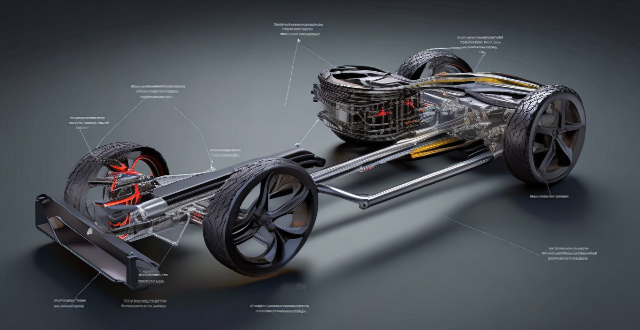
How does a gasoline hybrid car work ?
Gasoline hybrid vehicles, known as HEVs, merge an ICE with an electric motor for enhanced efficiency and reduced emissions. Key components include the ICE, electric motor, battery pack, transmission, and a generator/alternator. These cars can operate in various modes: fully on ICE power, purely electric, combined power, or through regenerative braking. The energy management controller optimizes power distribution for peak efficiency. Benefits of gasoline hybrids include better fuel economy, lower emissions, extended brake life, and potential tax incentives.

How much more expensive is a gasoline hybrid car compared to a regular gasoline car ?
The cost difference between a gasoline hybrid car and a regular gasoline car can vary depending on several factors such as brand, model, features, and location. However, in general, gasoline hybrid cars tend to be more expensive than regular gasoline cars. Here are some key points to consider: - Gasoline Hybrid Cars: These vehicles typically have a higher initial cost compared to regular gasoline cars due to the additional technology required for the hybrid system. The price difference can range from a few thousand dollars to over $10,000, depending on the make and model. One of the main advantages of gasoline hybrid cars is their improved fuel efficiency. They use both gasoline and electricity to power the engine, which results in better mileage and lower fuel costs over time. While gasoline hybrid cars may have higher repair costs due to their complex systems, they often require less maintenance overall because the electric motor helps reduce wear and tear on the engine. As awareness of environmental issues grows, so does the demand for eco-friendly vehicles like gasoline hybrid cars. This increased demand can help maintain or even increase their resale value over time. - Regular Gasoline Cars: These vehicles are generally less expensive upfront as they do not require the same advanced technology as hybrid cars. These vehicles rely solely on gasoline for power, which can lead to higher fuel consumption and expenses, especially if you drive long distances or frequently idle in traffic. These vehicles may have lower repair costs initially but may require more frequent maintenance, such as oil changes and tune-ups, due to their reliance on a single power source. The resale value of regular gasoline cars may decline faster than that of hybrid cars, especially as more buyers seek out fuel-efficient options.
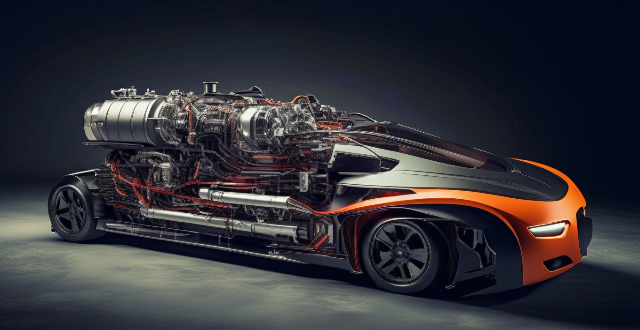
Can I still use gasoline in a gasoline hybrid car ?
Gasoline hybrid cars combine a traditional gasoline engine with an electric motor for improved fuel efficiency and reduced emissions. While they still require gasoline to operate the internal combustion engine, they offer significant savings in fuel costs over time. To maximize fuel efficiency in a gasoline hybrid car, drivers should practice eco-driving techniques, perform regular maintenance, and utilize regenerative braking settings. Gasoline hybrid cars represent a step towards reducing our reliance on fossil fuels and transitioning to cleaner energy sources.
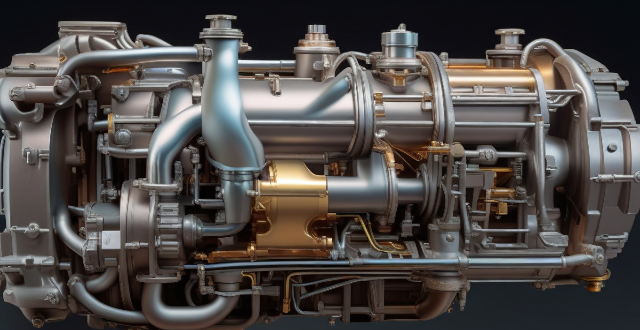
What are the benefits of a gasoline hybrid engine ?
The article discusses the advantages of a gasoline hybrid engine, which is a combination of a traditional internal combustion engine and an electric motor. The benefits include improved fuel efficiency through reduced fuel consumption, regenerative braking, and start-stop technology; lower CO2 emissions and decreased pollutants resulting in cleaner air quality; and enhanced performance with instant torque, smooth driving experience, and extended brake life due to regenerative braking. Overall, gasoline hybrid engines provide a balance between power and efficiency, making them an attractive option for eco-conscious drivers.

Do hybrid cars produce less pollution than traditional gasoline cars ?
Hybrid cars generally produce less pollution than traditional gasoline cars, but the comparison is not straightforward and various factors must be taken into account.
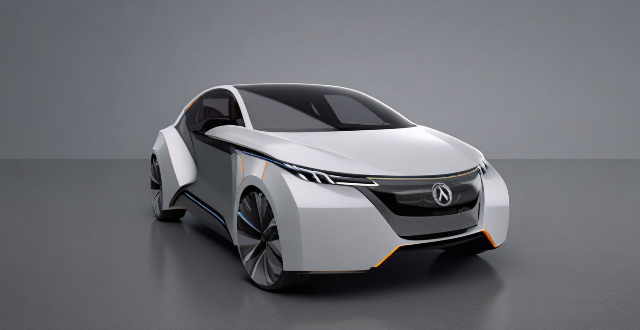
What is the difference between a gasoline hybrid and an electric car ?
The main difference between a gasoline hybrid and an electric car is their fuel source and how they generate energy. Gasoline hybrids run on a combination of gasoline and electricity, while electric cars run solely on electricity. Gasoline hybrids produce lower emissions than traditional gasoline-powered vehicles but still require gasoline to operate. Electric cars produce zero tailpipe emissions but may still result in emissions from electricity production. Finally, gasoline hybrids typically have a longer range than electric cars due to their ability to switch between using gasoline and electricity depending on driving conditions.

Are gasoline hybrid cars better for the environment than traditional gasoline cars ?
Gasoline hybrid cars, also known as hybrid electric vehicles (HEVs), are becoming increasingly popular due to their potential environmental benefits. These vehicles produce fewer emissions compared to traditional gasoline cars and have better fuel efficiency. They also use regenerative braking technology, which captures energy normally lost during braking and stores it in the battery, further improving fuel efficiency and reducing emissions. However, gasoline hybrid cars also have drawbacks such as higher upfront cost, limited electric-only range, and potential environmental impacts from battery production and disposal. Traditional gasoline cars, on the other hand, are generally less expensive than gasoline hybrid cars and have a widespread refueling infrastructure. They are also often simpler and more reliable than gasoline hybrid cars. In conclusion, gasoline hybrid cars offer several environmental benefits over traditional gasoline cars, but they also come with drawbacks. The decision between a gasoline hybrid car and a traditional gasoline car depends on individual preferences, priorities, and circumstances.

How do parallel hybrid electric vehicles (PHEVs) compare to traditional gasoline cars in terms of performance ?
Parallel Hybrid Electric Vehicles (PHEVs) offer better acceleration and fuel efficiency than traditional gasoline cars but may have lower top speeds and require more time for recharging. Gasoline cars have higher top speed capabilities and quicker refueling but are less efficient and require more maintenance. The choice between the two depends on individual needs and preferences.
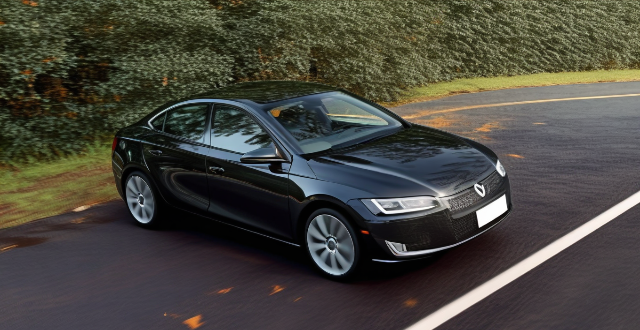
How far can a gasoline hybrid car travel on a full tank of gas ?
The text discusses the fuel efficiency and range of gasoline hybrid cars on a full tank of gas. Factors affecting fuel efficiency include driving habits, traffic conditions, vehicle maintenance, and weather conditions. Gasoline hybrid cars typically have higher fuel efficiency ratings than traditional gasoline-powered cars due to their combination of an electric motor and a gasoline engine. The estimated range of many gasoline hybrid cars is around 300-500 miles on a full tank of gas, with some having larger fuel tanks or higher fuel efficiency ratings allowing for greater ranges. Maximizing fuel efficiency can be achieved by considering factors such as driving habits and vehicle maintenance.
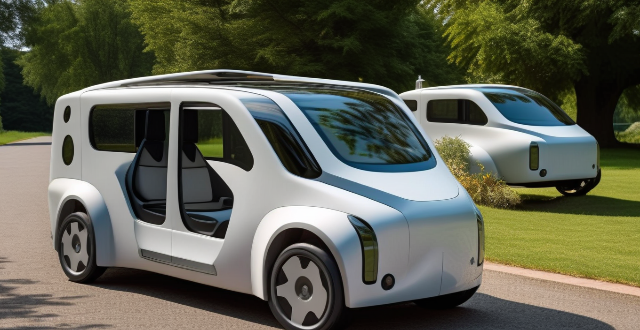
How do CHEVs compare in performance to fully electric vehicles ?
Chevrolet's hybrid electric vehicles (CHEVs) and fully electric vehicles (EVs) offer unique benefits and drawbacks. CHEVs have a longer range than EVs because they use both gasoline and electricity to power the vehicle, while EVs rely solely on electricity to power the vehicle. CHEVs are more efficient than traditional gasoline-powered vehicles, but less efficient than EVs. EVs are the most efficient type of vehicle because they produce zero emissions and use less energy than CHEVs. CHEVs typically have slower acceleration times than EVs due to their reliance on both gasoline and electricity, while EVs have faster acceleration times because they rely solely on electricity to power the vehicle. CHEVs require less maintenance than traditional gasoline-powered vehicles, but more maintenance than EVs. EVs require very little maintenance compared to CHEVs and traditional gasoline-powered vehicles.

Are electric cars more expensive than gasoline cars ?
Electric cars, also known as EVs, have been gaining popularity due to their eco-friendly nature and lower operating costs. However, the initial purchase price of an electric car is often higher than that of a traditional gasoline-powered car. In this article, we will explore the cost differences between electric and gasoline cars. ## Upfront Cost **Electric Cars:** - Higher upfront cost due to expensive battery technology and limited production scale. - Prices vary depending on the model, brand, and range. - Some governments offer incentives and tax credits to offset the high initial cost. **Gasoline Cars:** - Generally less expensive upfront compared to electric cars. - Wide variety of models and brands available at different price points. - No government incentives or tax credits for purchasing a gasoline car. ## Operating Costs **Electric Cars:** - Lower operating costs due to cheaper electricity rates compared to gasoline prices. - Maintenance costs are generally lower since there are fewer moving parts in an electric motor. - Battery replacement can be costly, but it is not expected until after several years of use. **Gasoline Cars:** - Higher operating costs due to fluctuating gasoline prices and regular maintenance requirements. - More frequent oil changes, tune-ups, and other routine maintenance tasks. - Fuel efficiency varies widely among gasoline cars, affecting overall operating costs. ## Depreciation **Electric Cars:** - Depreciation rate may be higher for electric cars due to rapid advancements in technology and changing consumer preferences. - Some early adopters may experience significant depreciation if they choose to sell their electric car before its battery lifespan ends. **Gasoline Cars:** - Generally slower depreciation rate compared to electric cars. - Well-maintained gasoline cars can retain their value for longer periods. ## Resale Value **Electric Cars:** - Resale value depends on factors such as battery health, range, and charging infrastructure availability. - As more people switch to electric cars, the demand for used electric vehicles may increase, potentially boosting resale values. **Gasoline Cars:** - Resale value is typically more predictable and stable compared to electric cars. - Factors such as fuel efficiency, brand reputation, and vehicle condition affect resale value. In conclusion, while electric cars may have a higher upfront cost, they offer lower operating costs and potentially better resale value in the future. It's essential for consumers to consider both short-term and long-term costs when deciding between an electric or gasoline car.
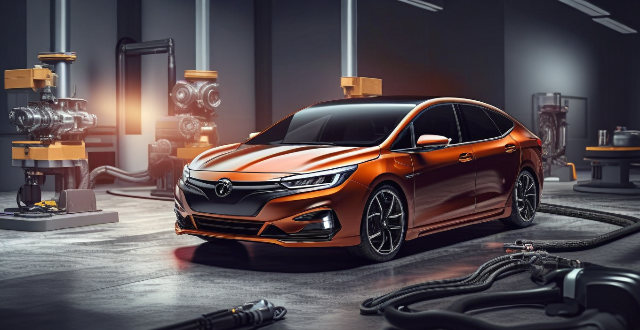
Do gasoline hybrid cars require special maintenance ?
This text discusses the maintenance requirements for gasoline hybrid cars, which combine a conventional engine with an electric motor for added efficiency. While these vehicles do not require extensive special maintenance, there are specific components that need attention. Regular maintenance such as oil changes, tire rotations, brake checks, and air filter replacements are still essential. Additionally, hybrid-specific maintenance includes monitoring battery health, checking the regenerative braking system, ensuring proper cooling of the electric motor, and maintaining transmission fluid levels. It is important to refer to the vehicle's owner's manual for specific maintenance schedules and seek out professional service when needed. By addressing both conventional and hybrid-specific maintenance needs, gasoline hybrid cars can run reliably and efficiently.
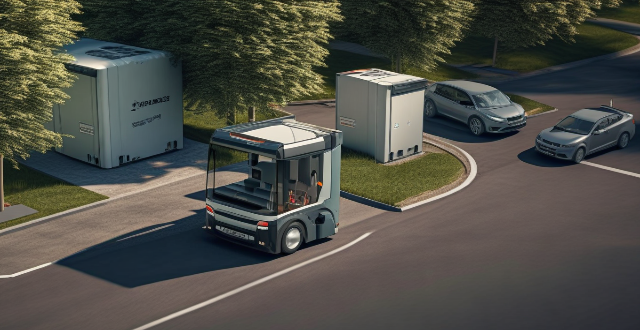
Are there any safety concerns associated with power batteries in electric vehicles ?
Electric vehicles (EVs) are becoming increasingly popular as an alternative to traditional gasoline-powered cars. One of the main components of an EV is its power battery, which stores energy and provides it to the electric motor. While power batteries have many benefits, there are also some safety concerns associated with them. In this article, we will discuss these concerns and how they can be addressed. The most significant safety concern associated with power batteries is thermal runaway. This occurs when a battery cell overheats and causes a chain reaction that can lead to fire or explosion. Thermal runaway can be caused by various factors, including manufacturing defects, physical damage, or improper charging. Another safety concern associated with power batteries is chemical leaks. Lithium-ion batteries, which are commonly used in EVs, contain chemicals that can be harmful if they leak out of the battery pack. Finally, there is a risk of fire associated with power batteries in EVs. While fires are rare, they can occur due to thermal runaway or other factors, such as physical damage to the battery pack.
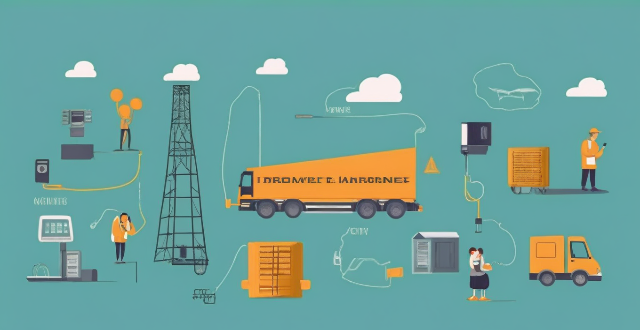
How important is it to have a backup power source in case of emergencies ?
The importance of having a backup power source in case of emergencies is crucial in today's world where we rely heavily on electricity. A backup power source can prevent data loss, maintain essential services, ensure safety, reduce downtime, and improve quality of life during power outages. There are various types of backup power sources available, including UPS, generators, solar power systems, and battery backups. Investing in a backup power source is an investment in peace of mind and preparedness for any emergency situation.

Can a Series Hybrid Electric Vehicle be charged by an external power source ?
Series HEVs can be charged by an external power source, which offers benefits like increased range and reduced emissions. To charge a series HEV using an external power source, you will need a compatible charging station or outlet. Most series HEVs come with a standard charging cord that can be plugged into a household outlet or a dedicated charging station.
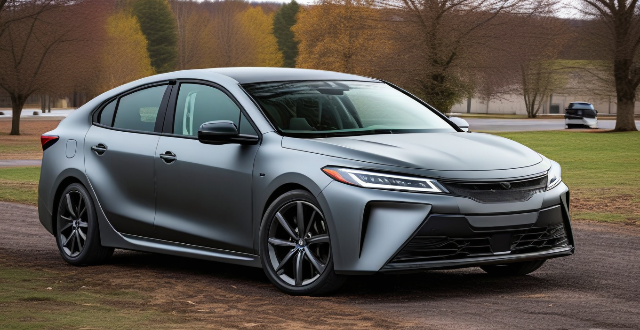
How do gasoline hybrid cars perform in cold weather ?
Gasoline hybrid cars' performance in cold weather can be affected by reduced battery capacity, thicker engine oil, and decreased tire traction. Proper maintenance and adjustments to driving habits are crucial for safe and efficient operation during the colder months.

Are CHEVs more expensive to maintain compared to regular hybrid vehicles ?
The article discusses the maintenance costs of Chevrolet (CHEV) and regular hybrid electric vehicles (HEVs), which are both designed to reduce fuel consumption and emissions. The powertrain configurations and operational strategies of CHEVs and regular HEVs differ, with CHEVs typically having a larger battery pack and prioritizing using electricity from the battery before switching to gasoline, while regular HEVs use both gasoline and electricity simultaneously or alternate between them based on driving conditions. Regarding maintenance costs, CHEVs may require more frequent battery replacements due to their larger size and higher usage, but their engines may experience less wear and tear since they spend more time in electric mode. On the other hand, regular HEV engines may require more maintenance due to constant switching between gasoline and electric power, but they generally have smaller batteries that last longer. In terms of transmission maintenance, CHEV transmissions may be simpler since they rely primarily on electric motors, while regular HEV transmissions may be more complex due to the need to manage both gasoline and electric power sources. Tire maintenance may also differ between CHEVs and regular HEVs, with CHEV tires potentially wearing differently due to regenerative braking systems, while regular HEV tires may not experience significant differences in wear patterns compared to traditional gasoline vehicles. Overall, while CHEVs may have higher initial costs due to their larger battery packs, they could potentially save money in the long run by reducing engine maintenance needs. However, regular HEVs might require less frequent battery replacements and simpler transmission maintenance. It is essential to consider individual driving habits and vehicle usage when evaluating maintenance costs for CHEVs and regular HEVs.
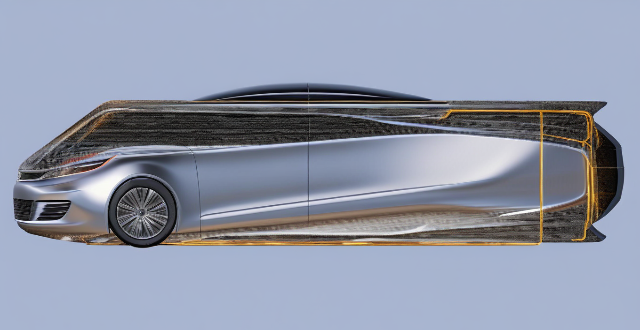
Are there any disadvantages to owning a hybrid car ?
Owning a hybrid car comes with several disadvantages, including higher cost compared to traditional gasoline-powered vehicles, limited power output, battery lifespan concerns, reliability issues, and potentially lower resale values.
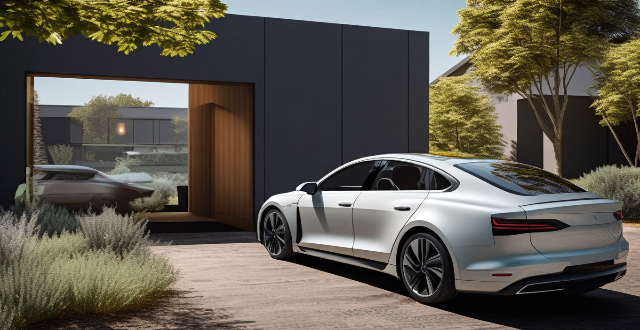
Is it more cost-effective to drive an electric or gasoline-powered car ?
In this article, we explored the cost-effectiveness of driving an electric car versus a gasoline-powered car. While electric cars may have a higher initial cost, they offer several advantages in terms of cost-effectiveness over the long term. Lower maintenance costs, cheaper fuel costs, and potential tax incentives make electric cars a more economical choice for many consumers. Additionally, electric cars have a smaller environmental impact compared to gasoline-powered cars, making them a more sustainable option for transportation.
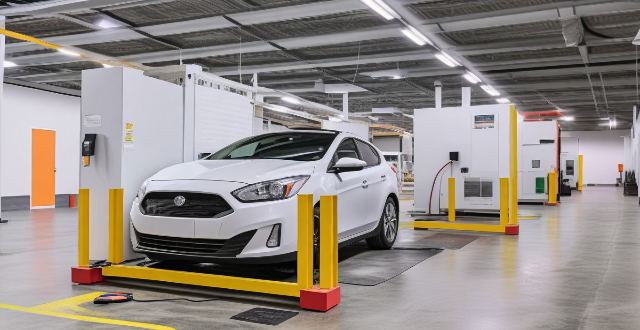
How does an electric car work ?
Electric cars, or EVs, are powered by electricity stored in a battery pack, which is used to power an electric motor that turns the wheels. The process includes starting the car with power from the battery to the controller, which then sends electricity to the motor for acceleration. Braking involves regenerative braking that captures energy to recharge the battery. Charging the battery requires plugging into an external power source managed by an onboard charger. Electric cars boast higher energy efficiency, lower operating costs, reduced environmental impact, quieter operation, and simpler maintenance compared to traditional gasoline vehicles.
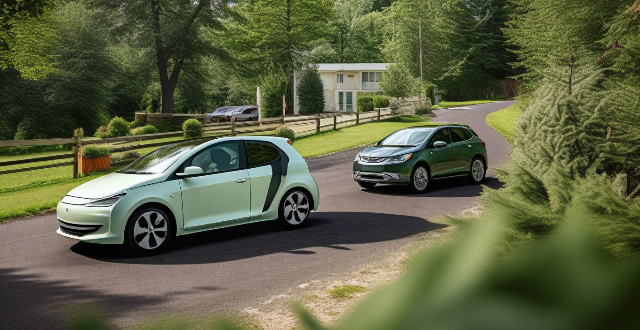
Are there any tax incentives for owning a gasoline hybrid car ?
Tax incentives for owning a gasoline hybrid car include federal tax credits, state and local tax breaks, and renewable fuel tax credits. These benefits aim to encourage eco-friendly vehicle choices and reduce greenhouse gas emissions.
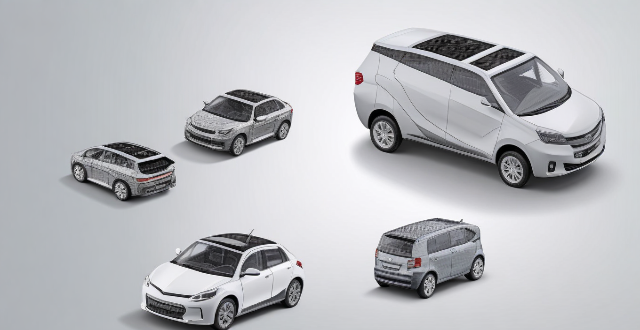
How does a parallel hybrid electric vehicle (PHEV) work ?
Parallel hybrid electric vehicles (PHEVs) are a type of hybrid vehicle that combines an internal combustion engine (ICE) with an electric motor. The two power sources can work independently or together, depending on the driving conditions. PHEVs have three operating modes: ICE only, electric motor only, and combined power. The energy management system controls the operation of the ICE and electric motor, deciding which power source to use based on driving conditions, battery state of charge, and other factors. PHEVs offer benefits such as improved fuel efficiency, reduced emissions, tax incentives, and reduced dependence on fossil fuels.
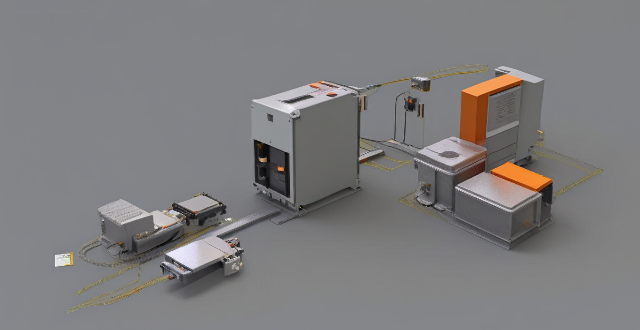
How does a lithium-ion power battery work ?
Lithium-ion power batteries work through the movement of lithium ions between the anode and cathode during charging and discharging, generating an electrical current to power devices. The process involves intercalation and deintercalation of ions in the electrodes, facilitated by an electrolyte and separator. Safety mechanisms and lifespan are key considerations for these widely used batteries.
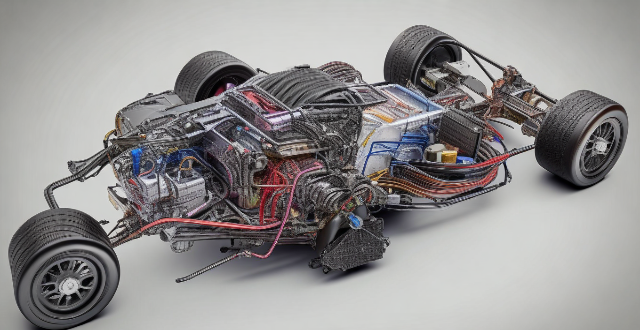
How do electric cars compare to hybrid cars ?
Electric cars run solely on electricity and produce zero emissions, while hybrid cars combine a gasoline engine with an electric motor for improved fuel efficiency. Electric cars offer environmental benefits and lower operating costs but have limited range and long charging times. Hybrids provide a balance between gasoline-powered vehicles and electric cars, with improved fuel efficiency and no range limitations but still rely on gasoline and produce emissions. The choice between the two often depends on individual needs and preferences.

How much power can a hub motor generate ?
Hub motors are electric motors built into the wheel's hub and are commonly found in electric vehicles, wheelchairs, and other space-limited applications. The power generation of a hub motor is influenced by its design, size, and the type of battery it uses. Larger motors generally produce more power but require more energy to operate. The control system managing the motor's power output can also affect performance. Examples of hub motor power generation include small electric bikes (250-500 watts), medium electric bikes (500-1000 watts), large electric bikes (over 1000 watts), electric wheelchairs (250-1000 watts), and other applications like golf carts and electric cars with varying power ratings.

What are the environmental impacts of electric cars ?
Electric cars, also known as EVs (Electric Vehicles), have become increasingly popular in recent years due to their potential to reduce greenhouse gas emissions and improve air quality. However, like any other technology, electric cars also have some environmental impacts that need to be considered. In this article, we will discuss the various environmental impacts of electric cars. One of the most significant environmental benefits of electric cars is their ability to reduce greenhouse gas emissions. Compared to traditional gasoline-powered vehicles, electric cars produce zero tailpipe emissions. This means that they do not release harmful pollutants such as carbon dioxide, nitrogen oxides, and particulate matter into the atmosphere. As a result, electric cars can help reduce air pollution and improve public health. The environmental impact of electric cars also depends on the source of energy used for charging them. If the electricity used to charge an electric car comes from renewable sources such as wind or solar power, then the overall environmental impact is positive. However, if the electricity comes from coal-fired power plants or other non-renewable sources, then the environmental benefits are reduced. It is essential to ensure that the electricity used for charging electric cars comes from clean and sustainable sources. The production of lithium-ion batteries used in electric cars has some environmental impacts. The mining and processing of raw materials required for battery production can lead to water pollution, soil contamination, and habitat destruction. Additionally, the disposal of spent batteries can pose challenges as they contain toxic chemicals that can harm the environment if not disposed of properly. Recycling programs and research into alternative battery technologies can help mitigate these impacts. The manufacturing process of electric cars also has some environmental impacts. The production of electric car components requires energy and resources, which can lead to greenhouse gas emissions and other forms of pollution. However, compared to traditional gasoline-powered vehicles, electric cars generally have a lower environmental impact during the manufacturing process due to their simpler design and fewer moving parts. To fully understand the environmental impacts of electric cars, it is essential to consider their entire lifecycle, including raw material extraction, manufacturing, use, and disposal. A comprehensive lifecycle analysis can help identify areas where improvements can be made to reduce the overall environmental impact of electric cars. This may include using more sustainable materials, improving energy efficiency during manufacturing, and developing better recycling programs for spent batteries. In conclusion, while electric cars offer significant environmental benefits over traditional gasoline-powered vehicles, they also have some environmental impacts that need to be considered. By addressing these issues through sustainable practices and continued research, we can maximize the positive environmental impacts of electric cars and work towards a cleaner, greener future.

What are the benefits of using solar power ?
Solar power is a renewable and sustainable energy source that offers numerous benefits. It can be cost-effective in the long run, environmentally friendly, promotes energy independence, has low maintenance costs, versatile applications, creates jobs, provides government incentives, increases property value, and enhances energy security. As technology advances and awareness grows about renewable energy sources like solar power, its adoption is expected to continue rising worldwide.